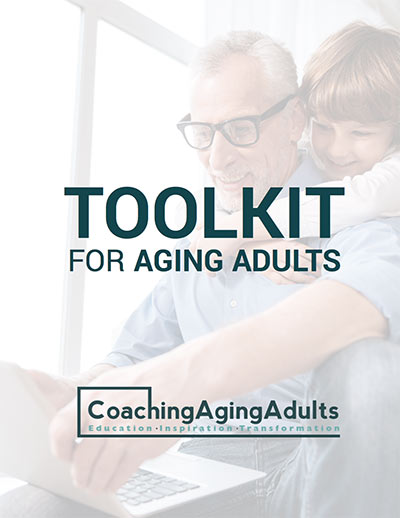Aging is an inevitable part of life. As we journey through the years, it becomes increasingly important to prioritize our physical, mental, and emotional well-being. While healthy aging brings its own set of challenges, it also offers an opportunity for personal growth and a fulfilling life. As a therapist and aging coach, I have witnessed the transformative power of adopting healthy habits and nurturing overall well-being in the aging process. In this blog post, we will explore various aspects of healthy aging, providing practical tips and strategies to help you age gracefully and live your best life.
Physical Wellbeing
Regular Exercise for a Strong and Resilient Body
Physical activity is the cornerstone of healthy aging. Regular exercise helps maintain strength, flexibility, and balance, reducing the risk of falls and injuries. Engaging in activities such as walking, swimming, yoga, or strength training not only keeps your body fit but also boosts your mood and cognitive function. Aim for at least 150 minutes of moderate-intensity aerobic exercise each week, complemented by muscle-strengthening activities two or more days per week.
Nourishing Your Body with a Healthy Diet
A well-balanced diet plays a vital role in healthy aging. Emphasize nutrient-rich foods such as fruits, vegetables, whole grains, lean proteins, and healthy fats. Adequate hydration is also crucial for maintaining optimal bodily functions. Limit your intake of processed foods, sugary snacks, and high-sodium meals, as they can contribute to chronic health conditions. Consult a nutritionist or healthcare professional to create a personalized eating plan that suits your individual needs.
Prioritizing Sleep for Restorative Rest
Quality sleep is essential for physical and mental well-being. As we age, sleep patterns may change, making it more challenging to get a good night’s rest. Establish a relaxing bedtime routine, create a comfortable sleep environment, and limit exposure to electronic devices before sleep. Aim for 7-9 hours of uninterrupted sleep per night. As this is easier said than done, you can experiment with supplements to help with sleep, such as magnesium, melatonin, 5-HTP.
If you experience persistent sleep disturbances, consult a healthcare professional for guidance.
Managing Chronic Conditions and Regular Health Checkups
Managing chronic health conditions is crucial for healthy aging. Regularly monitor your blood pressure, cholesterol levels, and blood sugar. Follow your healthcare provider’s recommendations for medications and treatments. Stay proactive about your health by scheduling regular checkups, screenings, and immunizations. Take control of your health by being aware of your body’s needs and maintaining open communication with your healthcare team.
As much as you feel that routine medical exams are time-consuming and a PIA, please take the time to make sure they are completed. You can ask your healthcare provider to add tests about things you are worried about that are not typically included. Sometimes more complete thyroid testing can give you additional information about your weight gain, lethargy, depression, and cognitive fog. Remember, you are the CEO of your health.
Mental and Cognitive Wellbeing
Stimulating Your Brain with Lifelong Learning
Engaging in lifelong learning is a powerful way to keep your mind sharp and vibrant. Seek out new experiences, take up hobbies, learn a musical instrument, solve puzzles, or enroll in courses that interest you. Stimulating your brain through intellectual pursuits promotes cognitive function and helps ward off age-related cognitive declines, such as dementia and Alzheimer’s disease.
Social Engagement for Emotional Wellbeing
Maintaining social connections is vital for emotional well-being. Strong social ties provide a sense of belonging, support, and purpose. Engage in activities that promote social interaction, such as joining clubs, volunteering, or participating in community events. Embrace technology to connect with loved ones, especially if distance is a barrier. Actively nurture relationships and surround yourself with positive and supportive individuals.
Stress Management Techniques for Emotional Resilience
Chronic stress can have detrimental effects on both physical and mental health. Practice stress management techniques such as deep breathing exercises, meditation, mindfulness, and relaxation techniques. Engage in activities that bring you joy and help you unwind. Consider seeking the guidance of a therapist or counselor to develop effective coping strategies and manage stress effectively.
Emotional Wellbeing
Cultivating Emotional Resilience and Positive Mindset
Emotional resilience is the ability to adapt and bounce back from life’s challenges. Cultivate emotional resilience by fostering a positive mindset, practicing gratitude, and reframing negative thoughts. Embrace self-compassion and acceptance, recognizing that aging is a natural process and that your worth goes beyond external appearances.
Embracing Change and Finding Meaning in Life
Aging often comes with significant life transitions and changes. Embrace these changes as opportunities for growth and self-discovery. Explore new interests, set meaningful goals, and find purpose in life. Reflect on your values, passions, and what truly brings you joy. Engage in activities that align with your core values, allowing you to live a fulfilling and purpose-driven life.
Healthy aging encompasses nurturing your physical, mental, and emotional well-being. By adopting healthy habits, engaging in lifelong learning, cultivating social connections, managing stress, and embracing change, you can enhance your overall quality of life as you age. Remember that healthy aging is a journey, and it’s never too late to start prioritizing your well-being. Seek support from professionals such as therapists and aging coaches, who can guide and empower you on this transformative path. Embrace the gift of aging, and make each day count as you live your best and most fulfilling life.
References:
American Psychological Association. (n.d.). Aging Well: Tips for Staying Physically and Emotionally Healthy
Centers for Disease Control and Prevention. (2021). Physical Activity Guidelines for Americans



